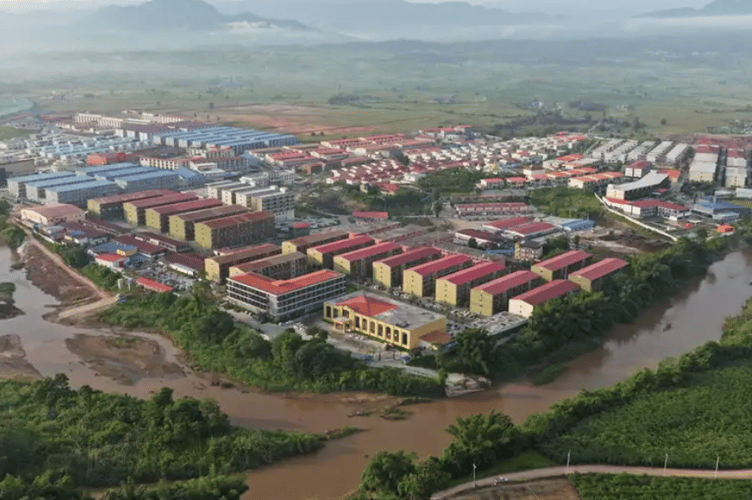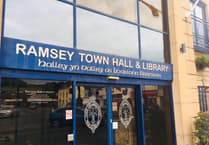The Isle of Man has become embroiled in a ‘transnational laundromat’, washing the criminal proceeds of gangs who operate industrial-scale scam compounds in the Far East, it has been claimed.
Crime syndicates from China have set up huge compounds specialising in internet fraud and human trafficking in a ‘Golden Triangle’ of countries across South East Asia including Myanmar, Cambodia and Laos.
They generate billions of pounds of illegal profits which needed laundering.
And to do this, the gangs have set up on-line Asian-facing offshore gambling businesses in jurisdictions which allegedly include the Isle of Man, island advocate Maria Bridson said during a presentation on modern slavery.
A report by the United Nations Office on Drugs and Crime (UNODC) on the shifting threat of transnational organised crime, published this month, cites the Isle of Man negatively 25 times.
It refers to the proliferation of ‘under-regulated online gambling platforms’ which it says are being used by ‘major organised crime groups to move, launder and integrate billions in criminal proceeds into the financial system without accountability’.
The report names the island as one of the jurisdictions that have become hubs for online gaming firms due to their ‘relaxed regulations and the relative ease with which licences can be obtained’.
Starting out in casinos and prostitution in the Golden Triangle, the gangs went on to set up a side-business in online cyber scams including one gruesomely known as ‘pig butchering’.
This involves victims being targeted and befriended on social media and persuaded to invest more and more money on a fake platform, apparently getting a good return, only for them to ultimately to lose their life savings.
Thousands of people are employed in these scam factories, many of them victims of human trafficking.
It is believed that around 500,000 are trapped in these compounds working in forced criminality and prostitution. ‘It is a global human trafficking crisis,’ said Maria.
The UNODC estimates financial losses of between $18bn and $37bn from scams targeting victims in East and South East Asia alone during 2023. Global losses are projected at $114bn.
‘This isn’t just a few rogue operators - it’s massive, it’s organised and it’s widespread,’ said Maria.
Initially targeting affluent Chinese speakers, the gangs branched out to seek their victims in the West.
The crime syndicates now sell off-the-shelf franchise opportunities to create shell companies, gaming websites and tech platforms and associated money laundering services.
It’s led to the rapid development of malware, AI and deep fake technology to make cybercrime easier and more plausible.
The money laundering side of the business has grown into ‘massive transnational laundromat’ which has led to the creation of a huge criminal service economy, said Maria.
‘We are part of this laundromat washing these funds - and worse. Because it does get worse.’

Recently the scam compounds have been identified in Dubai, Sri Lanka, Zambia, Peru and according to a BBC World Services reports referencing Chinese court documents, the Isle of Man - believed to be the first time a pig butchering operation has said to have been based in a western country.
Details emerged in August of Chinese migrants operating the scam from premises off Douglas promenade, having transferred from a base in the Philippines.
Six people were convicted in China in connection with the scam, with court documents showing that the syndicate defrauded victims in mainland China out of millions of dollars through fraudulent investment schemes.
‘Reputationally, it’s a disaster and represents a huge regulatory failure on our part,’ said Maria.
She said the pull factor for the crime syndicates were countries with reliable infrastructure, good telecoms links, lax border security and weak immigration enforcement, low taxes, a licensed online gaming industry offering legitimacy and authorities that are naive to external threats and all too welcoming of inward investment.
The UNODC report refers to island-based entities in a section entitled ‘Expansion of Asian crime syndicates beyond the Golden Triangle’.
The report outlines how one gambling company, in the process of building a £70m headquarters in the island, was raided in April this year.
Its simple website, designed with limited functionality, was ‘consistent with shell iGaming businesses used as fronts by criminal groups for laundering of criminal proceeds,’ the report notes.
Notably, the company’s co-founder had built up strong links in recent years to the Golden Triangle and a Chinese national sanctioned by the US over his organisation’s alleged drug trafficking, money laundering, bribery and human and trafficking of endangered wildlife including Asian black bears, tigers, pangolin, rhinos and elephants.
Criticising the ‘head in the sand’ culture of the regulators, Maria said: ‘The gaping holes between the regulatory silos are precisely what makes the island an open target.
‘Everything hangs on our reputation, that we are a safe and stable place. Modem slavery risks destroying that really very quickly. We collectively as individuals, industry and government need to change course. Regulators haven’t really got to grips and understood the global picture.’

.png?width=209&height=140&crop=209:145,smart&quality=75)
-(1).jpeg?width=209&height=140&crop=209:145,smart&quality=75)

